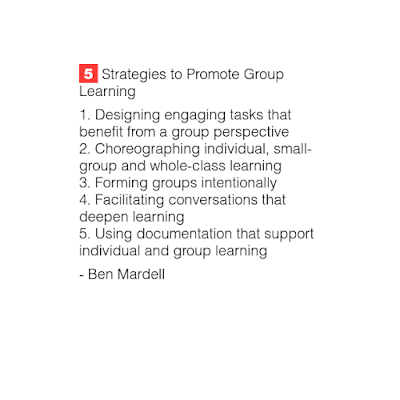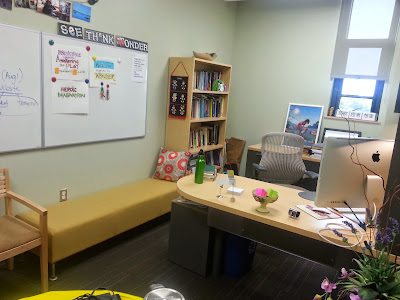 |
| My Office View |
Current Gig:
Learning Innovation Design Specialist at VCU ALT Lab.
One word that best describes how you work:
INTENSE.
Current mobile device:
Samsung Galaxy S6 for most of my on-the-go stuff, blue-tooth streaming of playlists, long-distance communication on Whatsapp, spontaneous photo capture of special moments. Samsung Galaxy Tab 4 (8 inch) for reading Kindle books, and other web resources. I had an old MacBook Pro for consulting with clients but have recently upgraded to a Dell XPS 13 Touch which is much lighter and syncs with my Android devices. I had an old iPad 2 which I've set aside since acquiring the Samsung Tab 4. It's much lighter and more portable than the iPad.
Current computer:
At work, I have an iMac and an Apple Thunderbolt display monitor. My home machine is a Dell XPS 8300 desktop which runs on Windows 7 Pro. It was easier for me to use a Windows PC when I was doing intensive research data analysis and most research software are compatible with a PC, like Access. I also used to create Adobe Captivate tutorials which previously only ran on a PC.
 |
| 2 Monitors |
What apps, software, and tools can’t you live without?
Whatsapp connects me to family and childhood friends that go way back, people who have known me since I was 6 and know what I'm truly capable of achieving, ;-). It also connects me to many new international friends and ex-students.
Kindle app, without which my life would be dull.
Google products like Gmail, Docs, Drive, Calendar and Play for music streaming with my portable bluetooth speaker,
Soundfreaq Sound Kick.
Two Adobe products I use regularly are
Photoshop and
Acrobat. Coming in close, for quick image editing, is
PicMonkey, which replaced Picnik when it got bought over.
For work and professional development,
Twitter,
Diigo and
Blogger (for personal reflections) are major spaces I participate in. I'm increasing my use of
Rampages, our VCU hosting of WordPress sites for courses and eportfolios. And also of
hypothes.is as I am getting more fascinated by annotations for learning interactions with authors.
What’s your workspace setup like?
I like to surround myself with beautiful things -- beauty as defined by me, myself -- artwork, books, and interesting artifacts, quotations, memories of life and people. The computers and mobile devices are there unavoidably, but I like to make my workspace look more human and home-like. I believe the environment is the third teacher and that walls speak of life experiences I've been through. So I decorate my workspace with stimulating ideas and color.
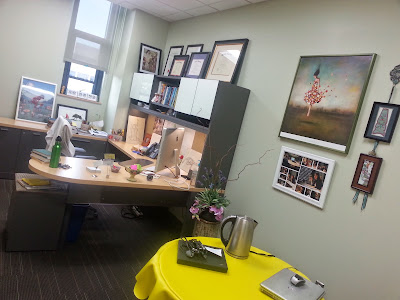 |
| My Office View 2 |
What’s your fave time-saving shortcut?
Are there true short-cuts in life? I'm not sure, although I've digitized a lot of stuff in my life, I still like to draw and paint by hand. Nothing replaces a pencil, pen or brush, to me. For work, I appreciate being able to import or export data from one app to another, and being able to store files in the cloud that are accessible wherever I go.
What’s your fave to-do list manager?
I don't have any that's digital. I write stuff on a notebook I carry around with me, to jot down ideas and to doodle. I use
Evernote sometimes, but not in a huge way.
Besides your phone and computer, what gadget can’t you live without and why?
No gadget is indispensable. I like to practice to a greater extent the philosophy of minimalism.
What do you listen to while you work?
Vocal quality and lyricism are important elements in music I listen to. I can listen to background music that is soothing and meditative if I'm doing something that requires some cognitive load. Otherwise, for heavyweight cognitive stuff, absolutely no music or sound when I'm writing and synthesizing elements to craft something new, like a dissertation, proposal, article or blog post. I get irritated and distracted when I'm overloaded with adrenalin.
When I'm drawing or painting, I can tolerate more lively music, but still nothing loud or jarring. I listen to Broadway, R & B, folk, instrumental and foreign language music. French and Italian songs are very lyrical to me, Mandarin and Cantonese songs connect me to my cultural roots.
What are you currently reading?
Too many books that I read in chunks and try to finish when I have some time. I'll list the top 3.
Metaphors We Live By by George Lakoff and Mark Johnson. I'm a fan of metaphorical thinking and writing, so I'm inspired by Lakoff and Johnson.
Everyone Communicates but Few Connect by John Maxwell is another book I'm reading for tips on how to truly connect and not just communicate with a lot of noise signifying nothing.
Creativity Inc by Edwin Catmull is intriguing for me, as with any book on creativity, which I'd once wanted to explore as a dissertation topic. I read mostly non-fiction books these days, unfortunately.
Are you more of an introvert or an extrovert?
I want to say I'm more of an introvert but I'm finding this to be a cultural and contextual perception because in Singapore, I'm perceived to be more extroverted and "louder" to most people than in the USA. Many of us are familiar with Susan Cain's book
Quiet: The Power of Introverts in a World That Can't Stop Talking, and I feel with her that there's some common association of quietness and introversion with pathology in American culture. I very much appreciate and admire individuals with a quiet confidence and gentle humility. Maybe I'm familiar with being in a Deaf community and am used to people not talking but gesturing.
How do you recharge?
I retreat to some quiet place to be alone by myself, meditate, read, listen to music, go to a musical, go outdoors, write, draw, be close to the sea or some reasonably large pool of water. I have to be in touch with the spiritual dimension of my life.
What’s your sleep routine like?
I try to get to bed early but somehow end up sleeping late like at midnight or later, because I seem to have so many things to do before I lie down. Most of the time, that is when I call family in Singapore. I like to read and reflect a bit before I sleep. I get up about 6 to 7 AM for work, but really I need 8 hours of sleep to function well.
What’s the best advice you’ve ever received?
Not directly aimed at me but
Bronnie Ware's blogpost on the Top 5 Regrets of the Dying resonated with me since I read it in 2012 (?). While struggling emotionally with dissertation writing, I read the blogpost and was able to move on to finish it, without obsessing more over it. I could have done this or that, but in the end, I wasn't going to bring my dissertation with me to the grave. And so I moved on and decided I had worked hard enough on it (Ware's #2 wish).
Is there anything interesting you’d like to add?
“I have looked in the mirror every morning and asked myself: ‘If
today were the last day of my life, would I want to do what I am about
to do today?’ And whenever the answer has been ‘No’ for too many days in
a row, I know I need to change something.” Steve Jobs
“You can only become truly accomplished at something you love. Don’t make money your goal. Instead pursue the things you love doing and then do them so well that people can’t take their eyes off of you.” Maya Angelou




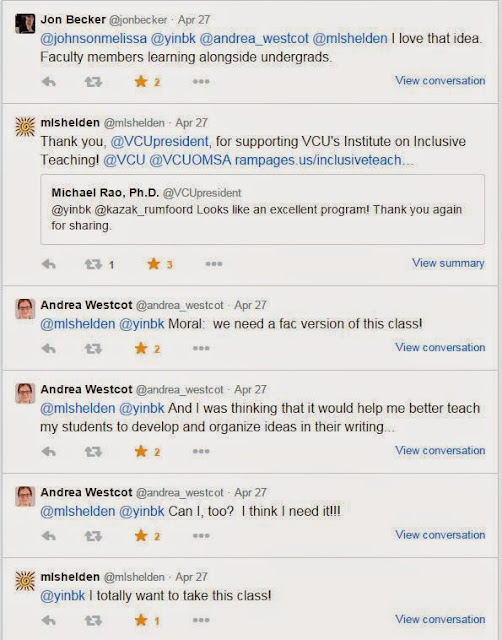



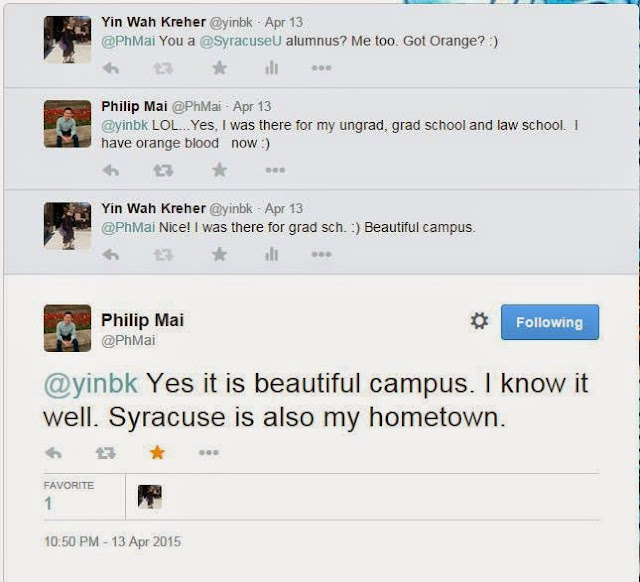



.png)
.png)
